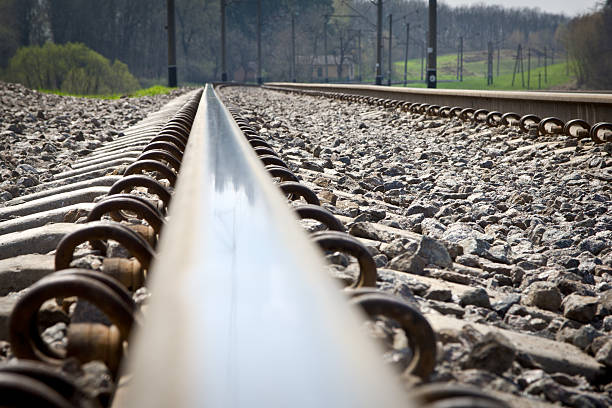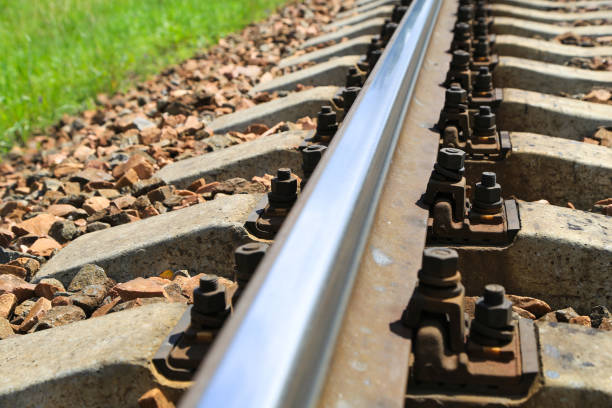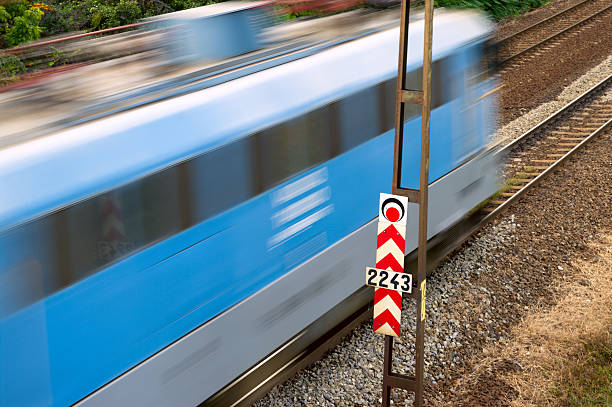The transport committee has written to Mark Harper calling the government’s response to its decarbonization report “disappointing” and has demanded a long-term rail electrification strategy. Fueling the Future is the transport select committee’s reaction to the government’s Transport Decarbonization Plan, released in July 2021, which aims to offer advice on decarbonization in maritime, aviation, road and rail. Within the Fueling the Future report, the committee recommended ministers produce a long-term decarbonization plan for the railways. It hoped this would focus on electrifying lines to achieve its ambition to phase out diesel-only trains by 2040. The committee has claimed that currently about 38% of the network is electrified. In areas where full electrification is not possible, the committee has suggested it should be supplemented by hydrogen, battery-powered and bi-mode or tri-mode traction trains. Current major electrification projects in the UK include a continuation of the Midland Mainline upgrade and electrifying the Transpennine Route in conjunction with the upgrade that is taking place on that line. The government’s response stated: “The government recognizes that electrification will play an important role in its programmed to achieve its net zero 2050 commitment. “Since 2010, more than 1,200 miles of electrification has been delivered in Great Britain. There is a pipeline of schemes underway across the country where sustained work is carried out. “The Integrated Rail Plan (IRP) outlines the biggest ever single government investment in Britain’s rail network, setting out £96bn investment into the railways of the North and Midlands and includes electrification of the Trans penning Route and the Midland Main Line. “The government has also committed £78 million to electrify the Wigan-Bolton line.” Following the government’s response, transport select committee chair Iain Stewart has written to Harper demanding a plausible plan for electrification delivery across the country. Stewart said: “My colleagues also urged government to stay committed to electrifying railway lines, or introducing alternative low-carbon motive power where full electrification is not viable, so that we can look forward to the day that vast swathes of the country are free of diesel-guzzling trains.

“We Want To See a Long-Term Strategy With Costings,
milestones and a credible delivery plan. The government’s response indicates there is still some way to go before they will be ready to put pen to paper on a detailed plan.” In January, NCE published an investigation that revealed Network Rail had only managed to electrify 2.2km of total track length open for traffic in Great Britain last year. This is less than 1% of its annual target which is needed to achieve a fully net zero railway by 2050. The transport body has set a target of electrifying 448km of track a year but hasn’t come close to reaching that target once in 10 years. The Fueling the Future report, also raised concerns that the new £5bn East West Rail (EWR) project to connect Oxford and Cambridge wouldn’t be electrified from the get go and how this project being fully electrified was key to decarbonization targets. The government responded to this and said: “Diesel rolling stock will be used for the start of services for Connection Stage 1 of EWR (providing services between Oxford to Bletchley and Milton Keynes). “Passive provisions will be made for electrification, so construction being progressed will not preclude the use of electrification in the future. “This is an interim solution, which will allow the earliest possible start of services between Oxford and Milton Keynes and enable the adoption of alternative traction modes in the future.” These concerns were also raised in a Parliamentary session into the planned route of the third section of EWR. In response to these issues discussed by MPs local to the project, transport minister Huw Merriman said: “Where we have built in new bridges, new infrastructure, we have done that with electrification for the future in mind. “It does have that pathway available to it and we look with the future towards hybrid options as far as trains are concerned, with the ability to make for a better decarbonized line of route.” The transport committee was further frustrated at the government’s responses to other transport sectors discussed in Fueling the Future. Stewart said: “My cross-party colleagues and I found the government’s response to our report disappointing as it failed to properly address some recommendations and sidestepped a key point altogether – that its overarching ‘technology agnostic’ approach on future fuels is long past its sell-by date. “We believe ministers need to move on from this and give greater certainty to investors and others about which fuels in each mode of transport they should be backing. On this and other points, I have urged the secretary of state to write to us again with some more meat on the bone.

“There Were Some Positives, However. I Welcome The Government’s.
indication that it will assist the private sector in its race to produce low carbon fuels for aviation, a sector that will prove particularly difficult to decarbonize due to the size and weight of electric batteries aircraft would require.” The transport committee has written to Mark Harper calling the government’s response to its decarbonization report “disappointing” and has demanded a long-term rail electrification strategy. Felling the Future is the transport select committee’s reaction to the government’s Transport Decarbonization Plan, released in July 2021, which aims to offer advice on decarbonization in maritime, aviation, road and rail. Within the Fueling the Future report, the committee recommended ministers produce a long-term decarbonization plan for the railways. It hoped this would focus on electrifying lines to achieve its ambition to phase out diesel-only trains by 2040. The committee has claimed that currently about 38% of the network is electrified. In areas where full electrification is not possible, the committee has suggested it should be supplemented by hydrogen, battery-powered and bi-mode or tri-mode traction trains. Current major electrification projects in the UK include a continuation of the Midland Mainline upgrade and electrifying the Trans penning Route in conjunction with the upgrade that is taking place on that line. The government’s response stated: “The government recognizes that electrification will play an important role in its programme to achieve its net zero 2050 commitment. “Since 2010, more than 1,200 miles of electrification has been delivered in Great Britain. There is a pipeline of schemes underway across the country where sustained work is carried out. “The Integrated Rail Plan (IRP) outlines the biggest ever single government investment in Britain’s rail network, setting out £96bn investment into the railways of the North and Midlands and includes electrification of the Trans penknife Route and the Midland Main Line. “The government has also committed £78 million to electrify the Wigan-Bolton line.” Following the government’s response, transport select committee chair Iain Stewart has written to Harper demanding a plausible plan for electrification delivery across the country. Stewart said: “My colleagues also urged government to stay committed to electrifying railway lines, or introducing alternative low-carbon motive power where full electrification is not viable, so that we can look forward to the day that vast swathes of the country are free of diesel-guzzling trains. “We want to see a long-term strategy with costings, milestones and a credible delivery plan. The government’s response indicates there is still some way to go before they will be ready to put pen to paper on a detailed plan.”

In January, NCE Published an Investigation That Revealed.
Network Rail had only managed to electrify 2.2km of total track length open for traffic in Great Britain last year. This is less than 1% of its annual target which is needed to achieve a fully net zero railway by 2050. The transport body has set a target of electrifying 448km of track a year but hasn’t come close to reaching that target once in 10 years. The Fueling the Future report, also raised concerns that the new £5bn East West Rail (EWR) project to connect Oxford and Cambridge wouldn’t be electrified from the get go and how this project being fully electrified was key to decarbonization targets. The government responded to this and said: “Diesel rolling stock will be used for the start of services for Connection Stage 1 of EWR (providing services between Oxford to Bletchley and Milton Keynes). “Passive provisions will be made for electrification, so construction being progressed will not preclude the use of electrification in the future. “This is an interim solution, which will allow the earliest possible start of services between Oxford and Milton Keynes and enable the adoption of alternative traction modes in the future.” These concerns were also raised in a Parliamentary session into the planned route of the third section of EWR. In response to these issues discussed by MPs local to the project, transport minister Huw Merriman said: “Where we have built in new bridges, new infrastructure, we have done that with electrification for the future in mind. “It does have that pathway available to it and we look with the future towards hybrid options as far as trains are concerned, with the ability to make for a better decarbonized line of route.” The transport committee was further frustrated at the government’s responses to other transport sectors discussed in Fueling the Future. Stewart said: “My cross-party colleagues and I found the government’s response to our report disappointing as it failed to properly address some recommendations and sidestepped a key point altogether – that its overarching ‘technology agnostic’ approach on future fuels is long past its sell-by date. “We believe ministers need to move on from this and give greater certainty to investors and others about which fuels in each mode of transport they should be backing. On this and other points, I have urged the secretary of state to write to us again with some more meat on the bone. “There were some positives, however. I welcome the government’s indication that it will assist the private sector in its race to produce low carbon fuels for aviation, a sector that will prove particularly difficult to decarbonise due to the size and weight of electric batteries aircraft would require.”


Recent Comments